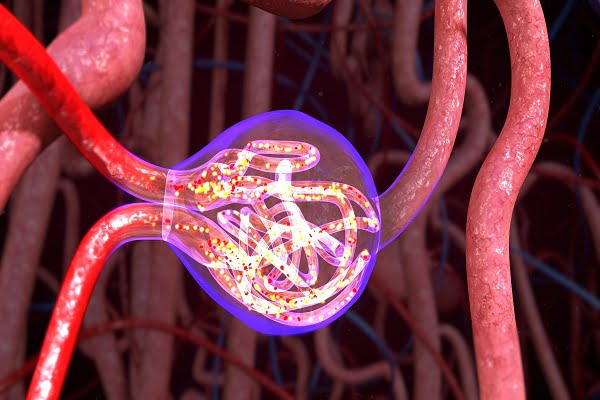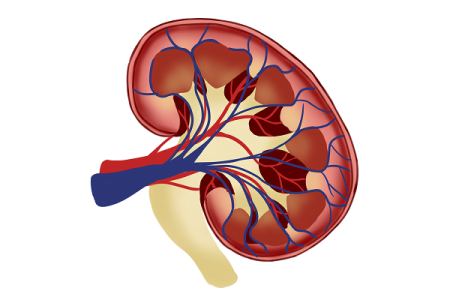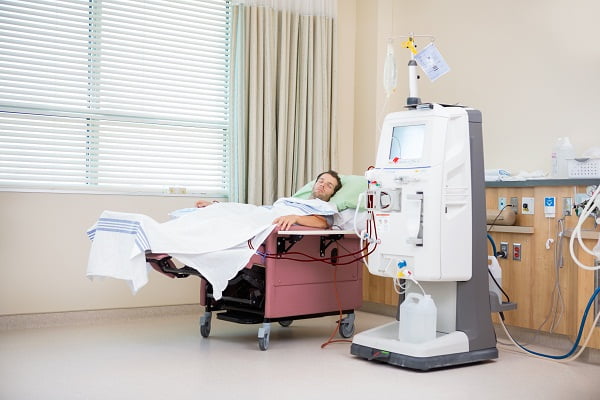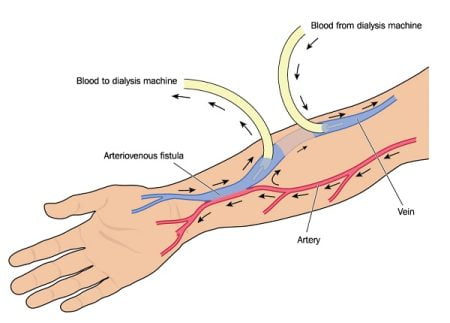Diagnosis and Tests for Chronic Kidney Disease
- Updated on: Jun 29, 2024
- 3 min Read
- Published on Sep 21, 2021

How to Diagnose Chronic Kidney Disease (CKD)
The first step in the diagnosis of chronic kidney disease that your doctor will start with will be about understanding your personal and family history. She may ask questions to identify if any of the major risk factors might have led to the kidney damage such as whether you had been diagnosed with high blood pressure in the past or if you had taken a medication that might affect kidney function or if you had noticed any changes in your urinary habits or whether you have any other member in the family with the disease.
Your doctor will then perform a physical exam and check for signs of problems with your heart or blood vessels. She may conduct a neurological exam too.
To perform the diagnosis for kidney disease, you may also need certain tests and procedures as discussed herein.
Tests and Procedures for the Diagnosis of Chronic Kidney Disease
Since numerous CKD patients additionally have high blood pressure/ hypertension, pulse estimation is a critical initial move towards an appropriate conclusion. Be that as it may, specialists utilize two fundamental tests to gauge kidney work and decide a patient’s phase of kidney ailment.
Evaluated Glomerular Filtration Rate, or eGFR
The primary test is known as the evaluated glomerular filtration rate, or eGFR. A specialist will initially do a blood test to decide how much creatinine — a chemical waste molecule generated by muscle metabolism — is present in the bloodstream. Creatinine levels, and also factors, for example, age, sex, and body measure, are then used to appraise the rate of glomerular filtration (the rate at which the kidneys filter blood).
Urine Albumin to Creatinine Proportion Test (ACR), or the Microalbumin Test
Another basic test used to analyze kidney ailment is known as the urine albumin to creatinine proportion test (ACR), or the microalbumin test. The test measures the amount of albumin, a blood protein, in the urine. This test is commonly used to identify early indications of kidney harm in those in danger of creating kidney illness.
On the off chance that a specialist finds that you have had a GFR below 60 for three months or more, he or she may determine you to have chronic kidney disease. A GFR over 60 with indications of kidney harm — as shown by large amounts of albumin in the urine — may also result in a diagnosis of CKD.
Other possible tests that may be conducted after diagnosis of CKD
Imaging Tests, such as Ultrasound or CT Scans
It assists specialists to know more about the size and state of kidneys, and in addition different conditions, for example, tumors or kidney stones, are available.
Kidney Biopsy
This test is done to control specific types of kidney problems or to see how much damage has occurred to plan for further treatment. Your doctor may ask for a kidney biopsy in which a sample of the kidney tissue is removed. Kidney biopsy is generally done under local anesthesia using a long and thin needle. The needle is inserted into your kidney through the skin to take the sample. The biopsy sample is then tested in a lab to determine what is causing the underlying problem.
FAQs
What are the key indicators in blood tests for chronic kidney disease?
Elevated creatinine levels, reduced glomerular filtration rate (GFR), and abnormal levels of electrolytes are crucial indicators.
Can chronic kidney disease be diagnosed early?
Yes, routine blood pressure checks, urine tests, and blood tests can help detect CKD in its early stages, allowing timely intervention.
How does diabetes contribute to chronic kidney disease?
Diabetes is a leading cause of CKD; it damages the kidneys' blood vessels over time, affecting their ability to filter waste.
Are there non-invasive tests for diagnosing chronic kidney disease?
Yes, imaging studies like ultrasounds and CT scans can provide valuable information about the structure and function of the kidneys.
What lifestyle changes can help manage chronic kidney disease?
Adopting a low-sodium diet, staying hydrated, regular exercise, and managing underlying conditions like diabetes can aid in CKD management.













2 Comments
Ultimately, the results of this project will support the exploration of the reasons why CRCI occurs and identify ways to improve the survivorship experience for breast cancer patients. Interestingly, immune related genes across different inflammatory functions were highly over represented
Exercise regularly to promote natural testosterone production